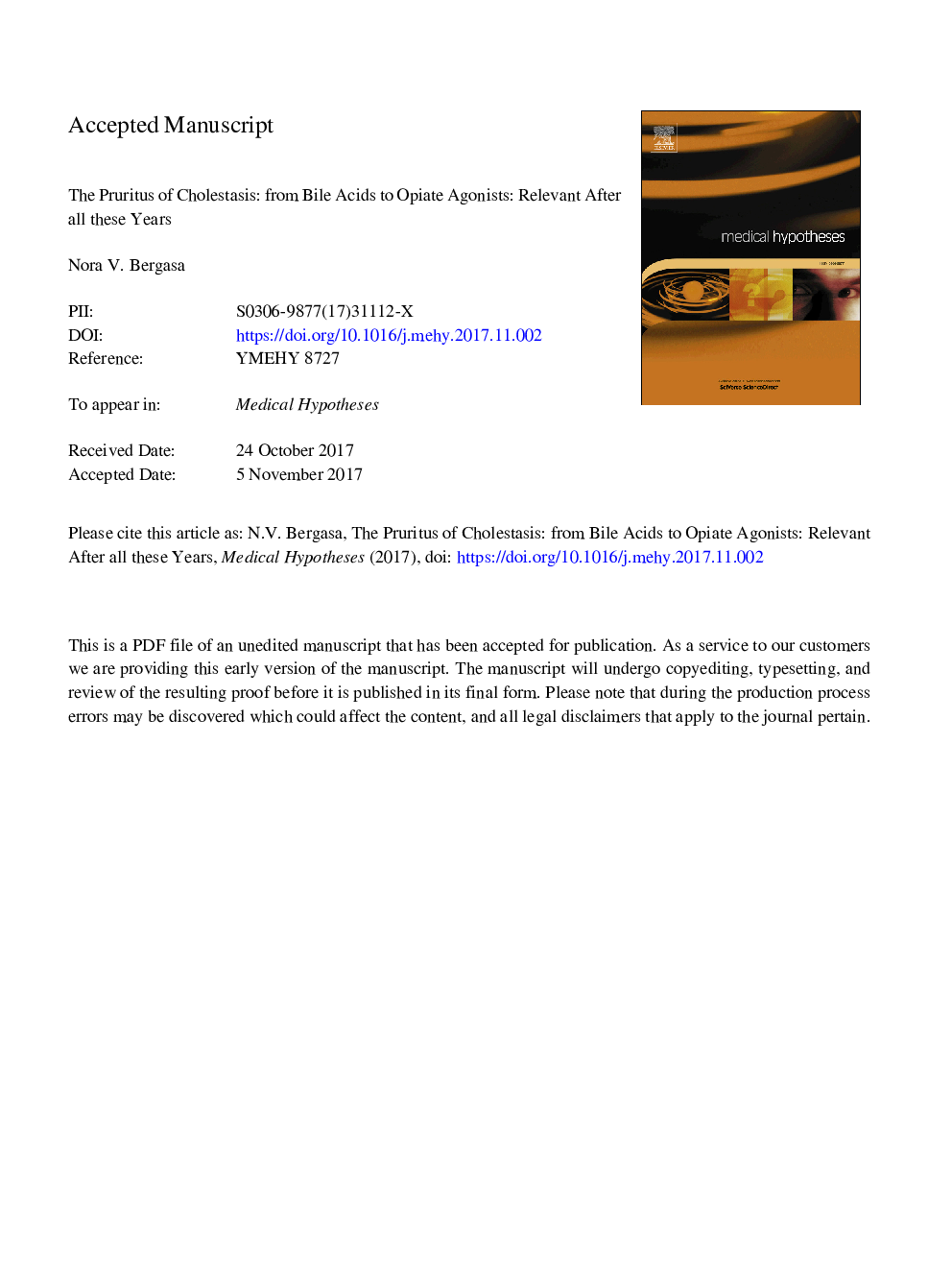| Article ID | Journal | Published Year | Pages | File Type |
|---|---|---|---|---|
| 8516105 | Medical Hypotheses | 2018 | 15 Pages |
Abstract
The pruritus of cholestasis is a maddening complication of liver disease. Increased opioidergic tone contributes to the pruritus of cholestasis, as evidenced by the amelioration of the symptom by opiate antagonists. Obeticholic acid, an agonist of the farnesoid receptor, has been approved for the treatment of primary biliary cholangitis, a disease characterized by cholestasis; this drug is associated with pruritus, the cause of which is unknown. In animal models, bile acids, which accumulate in the body as a result of cholestasis, have been reported to cause scratching behavior mediated by the TGR5 receptor, in an opioid-dependent manner, in laboratory animals. As obeticholic acid also binds to TGR5, the pruritus caused by this drug is likely to be mediated by the opioid system. Lisophosphatidic acid, which has been reported to be increased in patients with cholestasis and pruritus, has been described to cause scratching behavior that is prevented by an opiate antagonist in laboratory animals, suggesting an opioid-receptor mediated mechanism of scratching. In summary, evidence continues to support a role of the endogenous opioid system in the pathogenesis of the pruritus of cholestasis
Related Topics
Life Sciences
Biochemistry, Genetics and Molecular Biology
Developmental Biology
Authors
Nora V. Bergasa,
